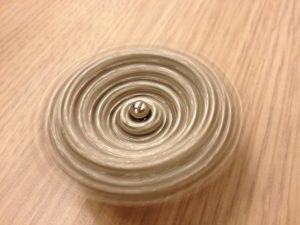
If your head starts spinning, it might be one of these vestibular disorders.
Vertigo is a common phenomenon that can happen to anyone of nearly any age. In general, it is expected that 70% of Americans will have at least one spell of vertigo in their lifetime. However, it is more common with women as they age and for those over the age of 75. There are various types of vestibular disorders that cause vertigo; a patient can better understand their symptoms and get treatment according to their case.
Common Symptoms
Vestibular disorders can be more or less severe. In milder cases, one may experience difficulty working, fatigue, and depressed feelings. With more severe instances, it can become hard to walk or even drive. One may be more likely to run into a risky situation. Each type of vestibular disorder, though, comes with its unique set of circumstances.
BPPV
BPPV, or Benign Paroxysmal Positional Vertigo, is the most common kind. It can happen to just about anyone. This type of dizziness occurs when calcium and protein deposits break off and fall into the inner ear canal, the part of the ear responsible for governing balance. Head injury, inner ear infection, and aging can cause this to occur. BPPV can be debilitating, but one can relieve it through the Epley Maneuver.
Ménière’s Disease
Ménière’s disease happens most often to those between the ages of 40 to 60, but can happen to anyone. It happens typically because of constricted blood vessels, allergies, viral infections, autoimmune diseases, and genetic predispositions, and usually involves a period of tinnitus or muffled hearing, followed by acute vertigo attacks. One may also experience temporary or permanent hearing loss and a full feeling in the ear. Ménière’s disease often happens in only one ear and usually requires medicine to alleviate the symptoms.
Vestibular Neuritis
Meanwhile, vestibular neuritis is vertigo that occurs due to inflammation in the inner ear. If someone has an ear infection, inflammation may happen around the nerves that signal balance, thus inhibiting their ability to function and causing vertigo. One can relieve symptoms of dizziness and nausea with medication while also healing the infection through steroids and antibiotics, as your doctor prescribes.
Ototoxicity
An ototoxic infection is damage to the vestibular nerves due to chemicals or medications. High or long-term doses of antibiotics, pain relievers, antidepressants, loop diuretics, and other medicines can produce a toxic effect. Nausea, headache, dizziness, and impaired vision can result. The best treatment is to work on managing balance while waiting for the chemicals to drain out of the body.
Trust the Experts at Clarity Audiology & Hearing Solutions
Need help with your hearing? Clarity Hearing can help. Clarity Audiology & Hearing Solutions is an independently owned and operated clinic that focuses on quality of care and personalized, friendly service to the surrounding areas of Ellicott City, Catonsville, Columbia. Our Doctors of Audiology are highly trained with advanced degrees and take the time to provide the personalized care and attention that you need and deserve. We provide advanced hearing aid options that are personally calibrated with cutting-edge digital technology to fit your hearing loss, your unique ear anatomy, and your individual listening needs.
You can call us today to schedule a FREE Hearing Protection Consultation at 410-698-6594! For more blog posts, news, and updates, follow us on Facebook, Twitter, Pinterest, and LinkedIn.
